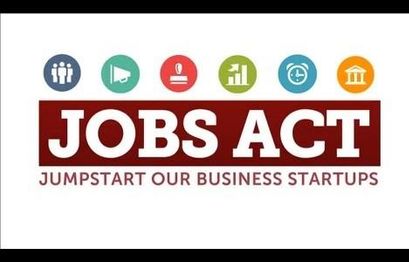Signed into law in April of 2012, the JOBS Act has created much buzz within the start-up industry.
The act lays out provisions meant to help businesses raise money directly through ordinary investors, among other points.
However, for all the hype, there is still uncertainty about when it will go live allowing for full equity crowdfunding of businesses. According to the experts, it’s not likely to be anytime soon.
“Crowdfunding is certainly not on the agenda to be a priority for quite a while,” says David Drake, CEO and founder of LDJ Capital.
Drake, who is a founding member of the Crowdfund Intermediary Regulatory Advocates, met with Congressman David Schweikert, a primary author of the JOBS Act, just three weeks ago and both agreed it likely won’t be brought up for a vote until at least August, though Drake believes it may be as late as October or November.
So while there’s still a ways to go before the act goes into effect, questions about what will happen next have arisen among industry watchers—will this lead to a surge of activity, including, perhaps, a rush of fraud? When it comes to the latter, Drake believes there should be no cause for concern.
“Fraud for crowdfunding for equity in the US is just nonsensical, completely fabricated by the opposition who doesn’t want crowdfunding for equity to happen,” he says. “It just makes no sense.”
Drake believes that the very nature of crowdfunding make it an inhospitable industry for scammer sites.
“If you’re going to [commit] fraud you’re going to do it one-on-one and you’re going to do it when there’s nobody watching,” he says. “Under the regulations of the JOBS Act you’ve got FINRA and the SEC looking at your background, doing background checks, checking your social security, and you’ve got thousands of people online checking your history, including who your friends are and where you work.”
John Callaghan, CEO and co-founder of iCrowd, assumes a similar point-of-view and says that the experience of investment crowdfunding has been one of crowds weeding out fraud.
“The structure of investor crowdfunding is really meant to be one of transparency, you’re crowdsourcing due diligence that is much harder for an individual to do by him or herself.”
He cites Australia as an example, a country that has been involved with crowdfunding since 2007 and reports no incident of fraud in that time.
“The reason for that isn’t too hard to discern, it’s not just regulations, it’s that when you have people collectively looking at companies as opposed to doing it individually or in the shadows, it’s easier to prevent something unsavoury from going on.”
He also points out that anyone who is involved in the space will have to be registered with FINRA, and that it will be possible to check out that registration.However, he does warn would-be investors to take reasonable precautions.
“Investors need to look out for the soundness of business, and it’ll be important for investors to focus on reputable sites who are complying with the regulation.”
Once the act does go live, both Callaghan and Drake do expect to see a surge in activity marking a positive change.
“Investment Crowdfunding, which was approved in the JOBS Act, promises to revolutionize small business corporate finance, taking advantage of internet economics, social media, and rich information exchange to provide capital for business and investment options to individuals that were previously unavailable to both,” Callaghan says. “Both sets of innovation reflect a long-standing trend that democratizes capital.”










